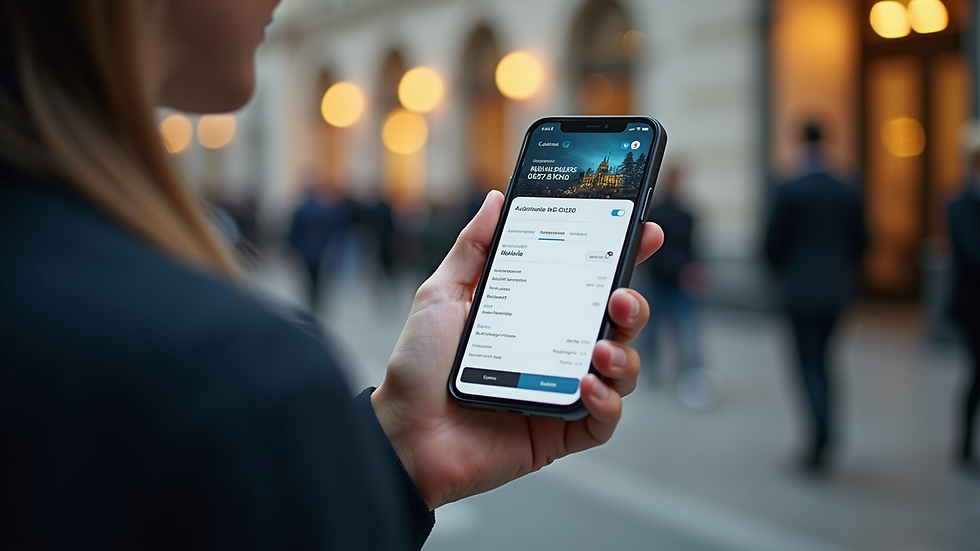Essential Tools for Event Planning Success
- Sep 22, 2025
- 4 min read
Planning an event can be a complex and demanding task. Whether it's a corporate conference, a wedding, or a community festival, having the right tools at your disposal can make all the difference. From managing timelines to coordinating vendors and tracking budgets, event planning tools help streamline the process and ensure nothing is overlooked. This article explores the essential event planning tools that can help you stay organised, save time, and deliver a successful event.
Why Event Planning Tools Matter
Event planning involves juggling many moving parts. Without proper tools, it’s easy to miss deadlines, double-book resources, or lose track of important details. Event planning tools provide structure and clarity by:
Centralising communication with team members and vendors
Automating repetitive tasks like sending reminders and follow-ups
Offering real-time updates on schedules and budgets
Simplifying guest list management and RSVP tracking
Providing templates and checklists to cover all bases
Using these tools reduces stress and increases efficiency, allowing you to focus on creating a memorable experience for attendees.

Top Event Planning Tools to Use
There are many tools available, each designed to address specific aspects of event planning. Here are some of the most effective ones:
1. Project Management Software
Tools like Trello, Asana, and Monday.com help you organise tasks, assign responsibilities, and track progress. You can create boards or lists for different event phases such as venue booking, catering, marketing, and logistics. These platforms often include calendar views and deadline reminders to keep everyone on track.
2. Budgeting Tools
Keeping your event within budget is critical. Software like Excel templates, Google Sheets, or specialised apps like Eventbrite’s budgeting tool allow you to monitor expenses, forecast costs, and adjust spending as needed. These tools help prevent overspending and ensure funds are allocated appropriately.
3. Communication Platforms
Clear communication is key to successful event coordination. Slack, Microsoft Teams, or even WhatsApp groups enable instant messaging, file sharing, and video calls. These platforms keep your team connected and responsive, reducing the risk of miscommunication.
4. Registration and Ticketing Software
For events requiring attendee registration or ticket sales, platforms like Eventbrite, Cvent, or Ticket Tailor simplify the process. They handle online registrations, payments, and generate reports on attendance, making check-in seamless on the event day.
5. Event Marketing Tools
Promoting your event effectively is essential. Email marketing services like Mailchimp or Constant Contact help you design campaigns, segment audiences, and track engagement. Social media management tools such as Hootsuite or Buffer allow scheduling posts and monitoring interactions across multiple platforms.

What do you need for event planning?
Successful event planning requires a combination of tools, skills, and resources. Here’s a checklist of what you typically need:
Clear objectives and goals: Define what success looks like for your event.
Detailed timeline: Break down tasks with deadlines.
Budget plan: Outline all expected costs and revenue sources.
Venue and vendor contacts: Secure locations and suppliers early.
Guest list and invitations: Manage RSVPs and special requirements.
Marketing strategy: Plan how to attract and engage attendees.
On-site logistics plan: Coordinate setup, staffing, and equipment.
Contingency plans: Prepare for unexpected issues like weather or technical problems.
Using the right tools to support each of these elements ensures a smoother planning process and a better event outcome.

Integrating Event Planning Essentials
Incorporating event planning essentials into your workflow can elevate your event management. These essentials include:
Checklists and templates: Standardise processes to avoid missing details.
Vendor management systems: Keep contracts, contacts, and payments organised.
Feedback tools: Collect attendee input post-event to improve future planning.
Collaboration features: Enable team members to contribute and stay informed.
By integrating these essentials with your chosen tools, you create a comprehensive system that supports every stage of your event.
Tips for Maximising Your Event Planning Tools
To get the most out of your event planning tools, consider these practical tips:
Train your team: Ensure everyone knows how to use the tools effectively.
Keep data updated: Regularly review and update information to avoid errors.
Automate where possible: Use reminders, notifications, and integrations to reduce manual work.
Monitor performance: Use analytics and reports to track progress and make informed decisions.
Stay flexible: Be ready to adapt tools and processes as your event evolves.
Adopting these habits will help you leverage technology to its fullest potential.
Moving Forward with Confidence
Choosing and using the right event planning tools can transform a daunting task into a manageable and even enjoyable process. By organising your workflow, improving communication, and keeping track of every detail, these tools empower you to deliver successful events consistently. Whether you are planning a small gathering or a large-scale conference, investing time in selecting the best tools will pay off in smoother execution and happier attendees.
Start exploring the options today and build your toolkit around your specific needs. With the right support, your next event will be your best yet.














Comments